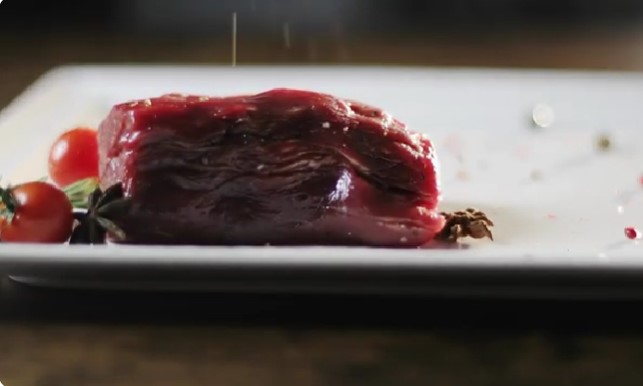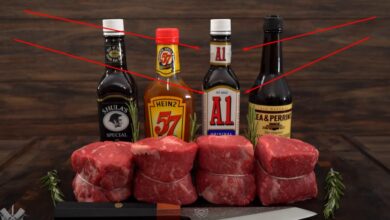Venison Nutrition Facts
Venison, or deer meat, is a lean and nutrient-dense protein source gaining popularity among health enthusiasts and foodies alike. Known for its rich flavor and versatility, venison offers a range of nutritional benefits that make it a valuable addition to a balanced diet. This article delves into the detailed nutritional profile of venison, examining its health benefits, potential risks, and tips for incorporating it into your meals.

Introduction
Venison is often celebrated for its unique taste and nutritional benefits. Unlike more common meats such as beef and pork, venison is leaner and often considered a healthier alternative due to its lower fat content and higher concentration of essential nutrients. Whether you’re a hunter, a gourmet cook, or someone looking to diversify your protein sources, understanding the nutritional aspects of venison can help you make informed dietary choices.
Nutritional Profile of Venison
Macronutrients
A 3-ounce (85 grams) serving of cooked venison typically contains:
- Calories: Approximately 130
- Protein: About 26 grams
- Fat: Around 2 grams
- Carbohydrates: 0 grams
Vitamins and Minerals
Venison is rich in several essential vitamins and minerals, including:
- Iron: Essential for blood health and oxygen transport.
- B Vitamins: Important for energy metabolism and neurological function.
- Zinc: Supports immune function and wound healing.
- Phosphorus: Necessary for healthy bones and teeth.
Omega-3 Fatty Acids
Compared to grain-fed beef, venison typically contains higher levels of omega-3 fatty acids, which are beneficial for heart health and reducing inflammation.
Health Benefits of Venison
High Protein Content
Venison is an excellent source of high-quality protein, which is essential for muscle growth, repair, and overall body function. Its protein content is comparable to that of other lean meats, making it an ideal choice for those looking to increase their protein intake without adding excessive fat to their diet.
Low in Fat
One of the standout features of venison is its low-fat content. With only about 2 grams of fat per 3-ounce serving, venison is significantly leaner than beef and pork, making it a healthier option for those concerned about fat intake and heart health.
Rich in Iron
Iron is a crucial mineral for preventing anemia and maintaining energy levels. Venison’s high iron content makes it particularly beneficial for individuals who may be at risk of iron deficiency, such as women of childbearing age and endurance athletes.
B Vitamins
Venison is a great source of B vitamins, including B12, which is vital for nerve function and the production of DNA and red blood cells. These vitamins also play a role in converting food into energy and maintaining healthy brain function.
Potential Risks of Consuming Venison
Lead Contamination
A significant concern with wild-harvested venison is the potential for lead contamination from lead-based ammunition. Studies have shown that venison can contain small lead fragments, which pose health risks, particularly to children and pregnant women. Opting for lead-free ammunition can mitigate this risk.
Cholesterol and L-Carnitine
While venison is low in fat, it is still a red meat and contains cholesterol and L-carnitine, which can contribute to cardiovascular issues if consumed in excess. Moderation and a balanced diet are key to minimizing these risks.
Tips for Cooking and Eating Venison
Selecting Quality Meat
For the best nutritional benefits, choose venison that is:
- Grass-Fed: Ensures a higher content of omega-3 fatty acids and a better nutrient profile.
- Pasture-Raised: Indicates the animal was raised in a natural, stress-free environment, leading to healthier meat.
Cooking Methods
To retain its nutritional value, consider cooking venison using methods such as grilling, broiling, or roasting. Avoid deep-frying or using heavy sauces that can add unnecessary fats and calories.

Frequently Asked Questions
Is venison healthier than beef?
Venison is generally leaner and has a higher concentration of certain nutrients, such as iron and B vitamins, compared to beef. However, both can be part of a healthy diet if consumed in moderation and prepared properly.
Can venison be part of a heart-healthy diet?
Yes, venison can be part of a heart-healthy diet due to its low fat and high omega-3 fatty acid content. However, be mindful of portion sizes and avoid cooking methods that add excessive fat.
Are there any risks associated with eating venison?
The primary risk associated with venison is lead contamination from lead-based ammunition. To reduce this risk, opt for venison harvested with lead-free ammunition. Additionally, as with any red meat, consume venison in moderation to avoid potential cholesterol-related issues.





